
Issue #14, Saturday 22 January 2022
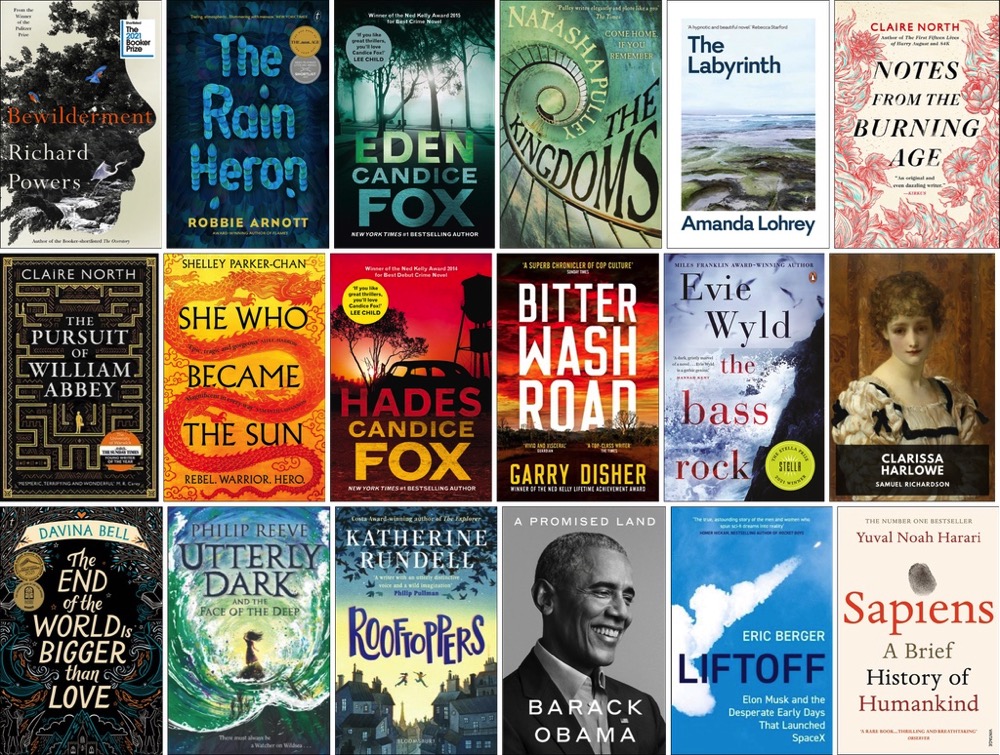
I thought I should give you a summary of my reading journey during 2021. I should have put this in the last issue, but didn’t have time to get it together.
It was a very good year for reading, I read some really excellent books during the year.
I read 86 books in total, so a bit more than 7 books a month, 1.65 books a week. However, the books ranged greatly in length, from Clarissa, one of the longest novels in the English language, to a bunch of books of only novella length.
So a better measure might be how many pages I read during 2021. Which is tricky, because ebooks don’t have a fixed page length, and I read a lot of those. All I can do for those is to use the page counts for common print editions as listed on the Goodreads website. Doing that, and cutting down on the length of Clarissa to account for the fact that I started reading it in 2020, I get an estimate of about 32,420 pages read last year, or about 90 pages a day. Put that way, it doesn’t seem like a lot.
Breaking down the books by genre, this is how it looks:
Crime: 22 books
Science Fiction: 13 books
Fantasy: 19 books
Historical: 2 books
Literary/non-genre: 17 books
Nonfiction: 12 books
Short Stories: 1 book
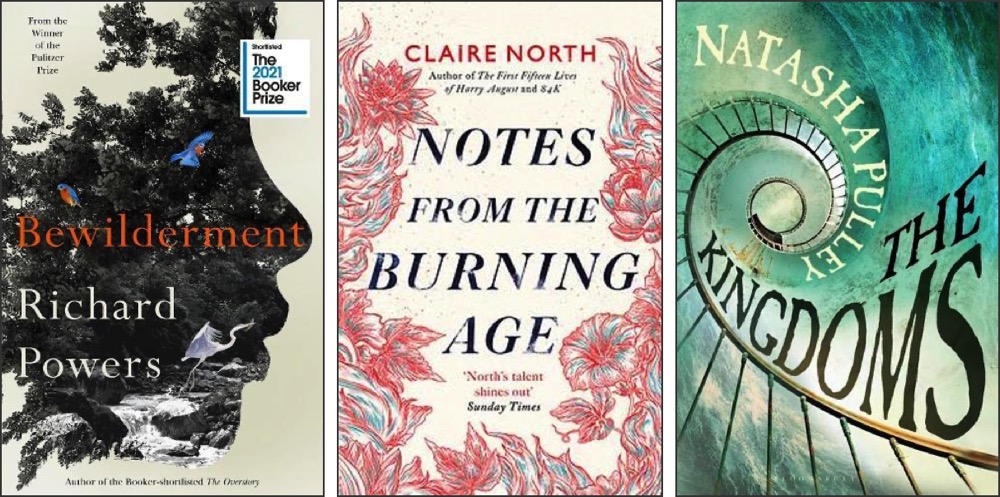
Bewilderment by Richard Powers
Notes from the Burning Age by Claire North
The Kingdoms by Natasha Pulley
The Ministry for the Future by Kim Stanley Robinson
Babel-17 by Samuel R. Delany (a re-read)
Honourable Mention:
Project Hail Mary by Andy Weir
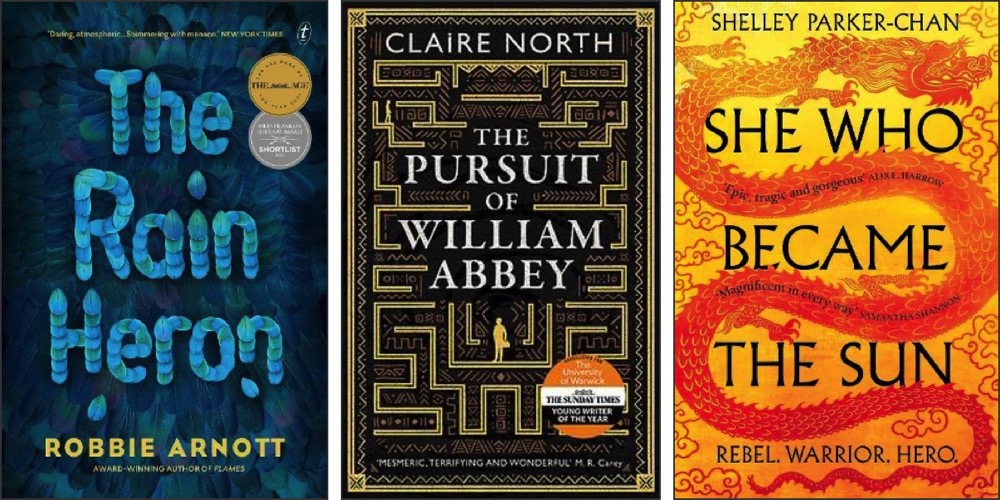
The Rain Heron by Robbie Arnott
The Pursuit of William Abbey by Claire North
She Who Became the Sun by Shelley Parker-Chan
The Dragon Waiting by John M. Ford
The Haunting of Hill House by Shirley Jackson
Honorable Mention:
The End of the Day by Claire North
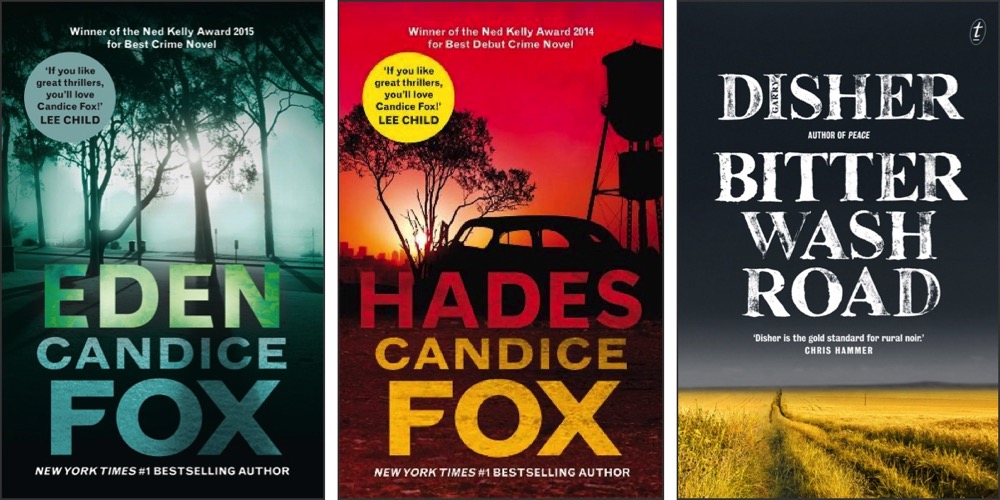
Eden by Candice Fox
Hades by Candice Fox
Bitter Wash Road by Garry Disher
Peace by Garry Disher
Lemon by Kwon Yeo-sun
Honorable Mentions:
Consolation by Garry Disher
The Wife and the Widow by Christian White
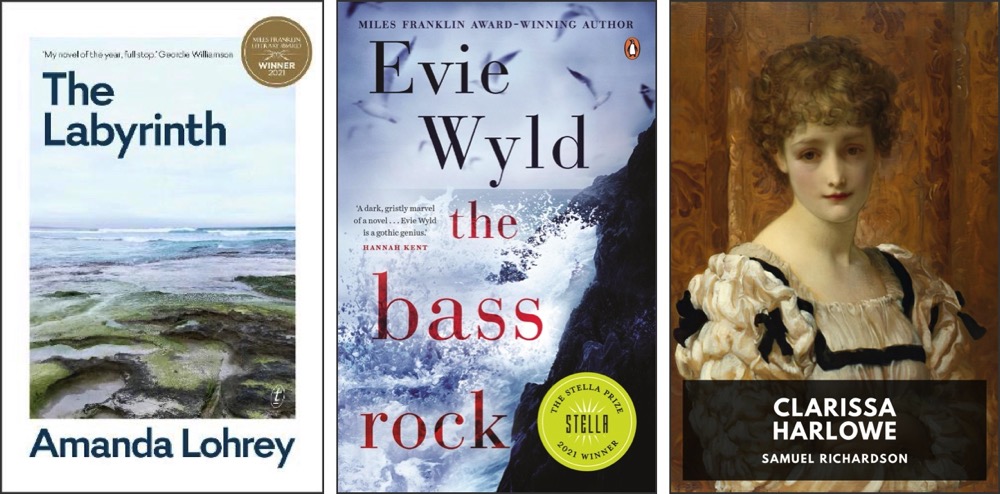
The Labyrinth by Amanda Lowrey
The Bass Rock by Evie Wyld
Clarissa, or, the History of a Young Lady by Samuel Richardson
Light Perpetual by Francis Spufford
Norwegian Wood by Haruki Murakami
Honorable Mentions:
The Women in Black by Madeleine St.John
The Glass Hotel by Emily St.John Mandel
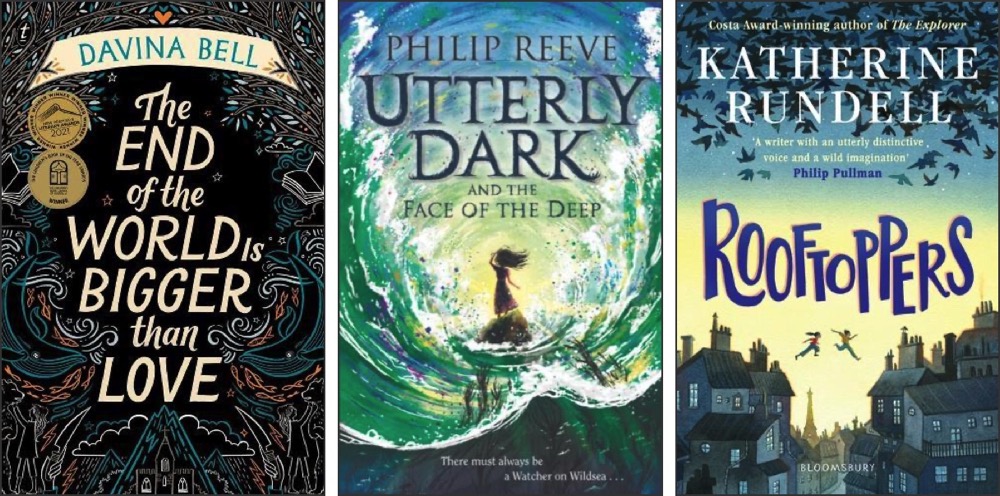
The End of the World Is Bigger than Love by Davina Bell
Utterly Dark and the Face of the Deep by Philip Reeve
Rooftoppers by Katharine Rundell
John Diamond by Leon Garfield
The Scarecrow and His Servant by Philip Pullman
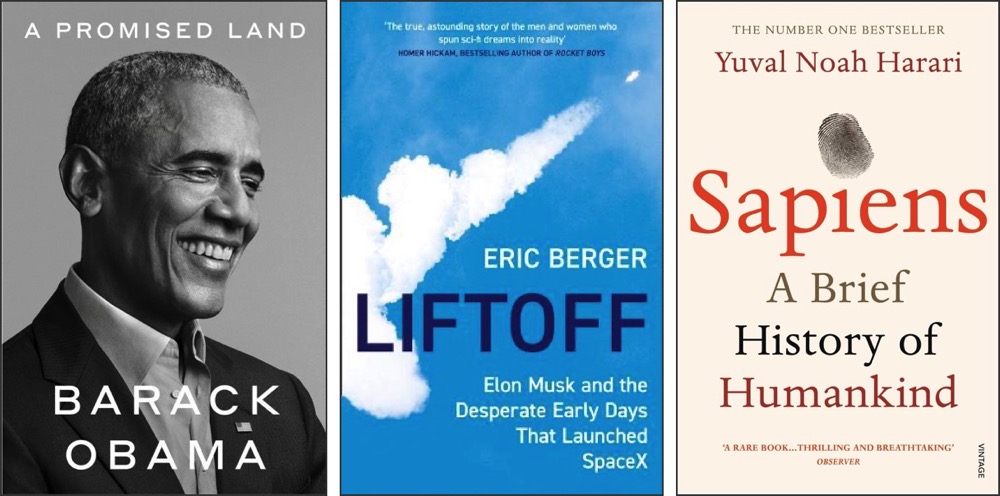
A Promised Land by Barack Obama
Liftoff: Elon Musk and the Desperate Early Days That Launched SpaceX by Eric Berger
Sapiens: A Brief History of Humankind by Yuval Noah Harari
Waiting for Elijah by Kate Wild
Extraterrestrial: The First Sign of Intelligent Life Beyond Earth by Avi Loeb
Honorable Mention:
Dead Wake: The Last Crossing of the Lusitania by Erik Larsen
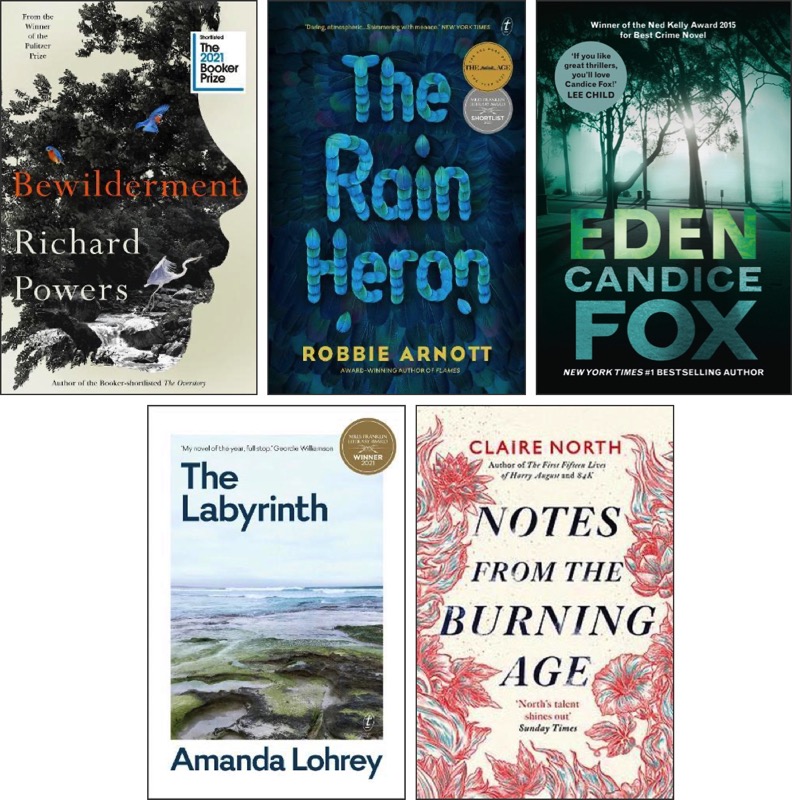
Bewilderment by Richard Powers
The Rain Heron by Robbie Arnott
Eden by Candice Fox
The Labyrinth by Amanda Lowrey
Notes from the Burning Age by Claire North
Honorable Mentions:
The Bass Rock by Evie Wyld
The End of the World Is Bigger than Love by Davina Bell
Perry and I talked at length about our favourite reads of 2021 in this episode of our podcast.
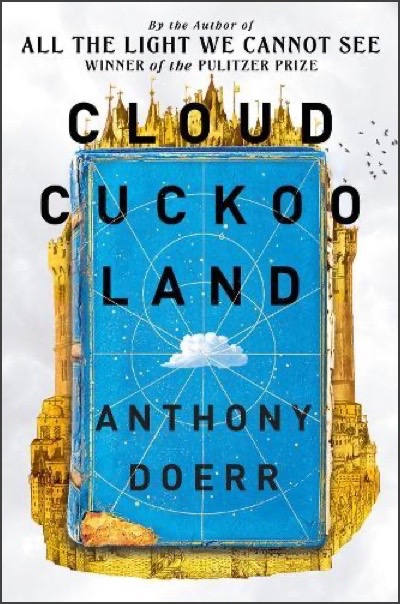
I loved this, but it’s a bit hard to know how to describe it. It opens with a scene on an interstellar spacecraft, a generation ship called the Argos, where we meet Konstance, a fourteen-year old girl. She’s in what is called Vault One, and she’s crammed in there with a bed and crates of food. Clearly this isn’t a usual accommodation on the craft. Something is wrong. On pieces of card she’s ripped from food packets, she’s written notes relating to a fantastical, comical story called Cloud Cuckoo Land, written almost 2,000 years ago. Why is she in the Vault? Why is she so interested in this ancient book? It will take a while for us to find out.
We then shift to our own era, to Lakeport, Ohio, where an old man called Zeno Ninnis is meeting with a group of primary-school students to rehearse a play. The play is an interpretation of the text of Cloud Cuckoo Land, which Zeno has translated from the ancient Greek. There, we also meet Seymour, a disturbed young man planning violence.
Then we go back in time to the 1450s, to Constantinople, where we meet young Anna, who is a not-very-good seamstress. She’s disturbed by hearing rumours about the plans of the Sultan of Turkey to attack the city. In the same era, we meet Omeir, born with a hare-lip defect and viewed with such horror by his parents’ neighbours that the family is driven out from the village in Bulgaria where they have lived for many years.
This strangely mixed cast of characters are all linked together by the ancient story of Cloud Cuckoo Land written by Antonius Diogenes.
The author manages to juggle all of these lives and stories almost effortlessly, at the same time keeping us reading by the slow build-up of tension: the mystery of what has happened to Konstance on the interstellar voyage of the Argos; the developing siege of Constantinople by the Turks, with Anna and Omeir on opposite sides; the coming of age and experiences as a prisoner of war of Zeno, a gay man unable to express his love; and young Seymour, in love with nature and becoming radicalised to the point of violence.
It all works brilliantly. Highly recommended.
Anthony Doerr also wrote the Pulitzer Prize winning novel All the Light We Cannot See, which is also excellent. I can’t wait to see what he will write next. Whatever it is, I’ll be buying it.
I already talked about this last issue. But I wanted to mention it again because the two books I’ve read so far this year, Cloud Cuckoo Land and All Our Shimmering Skies, were both 5-star quality. What a terrific start to the year!
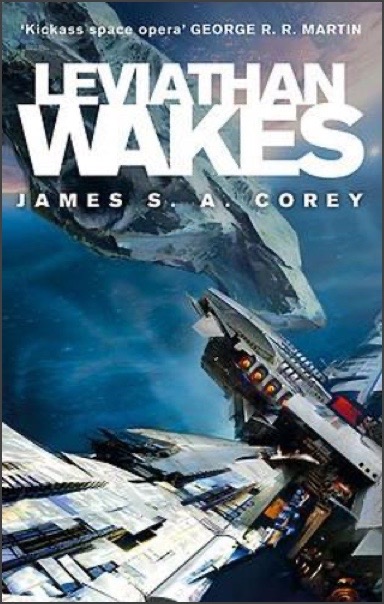
Leviathan Wakes by James S. A. Corey: Call me crazy if you like, but I’ve decided to re-read my way through all 8 previous volumes of The Expanse series before tackling the final one, which came out late last year. Very easy reading, though, entertaining with interesting characters and a tension-filled plot. I can probably read a volume every week, big as they are (about 600-odd pages each).
The Books of Jacob by Olga Tokarczuk: I got about a fifth of the way into this, but found it hard to get engaged with and it involves a lot of (to me) esoteric knowledge about Jewish mysticism. I feel that I gave it a pretty good try, but given the size of the book (almost 1,000 pages) there was no way I was going to finish before it had to go back to the library.
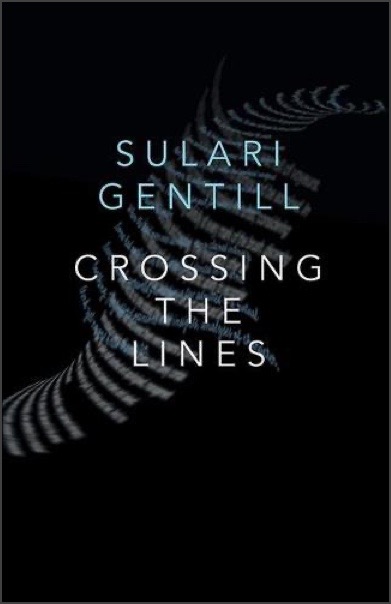
Crossing the Lines by Sulari Gentill : This won the Ned Kelly Award for Best Crime Novel in 2018, and Perry was waxing enthusiastic about it on our podcast, so I’m looking forward to reading it.
And that’s it for this issue of Through the Biblioscope. Catch you next time. Please feel free to comment and share this post with your friends.
© Copyright 2024 by David R. Grigg
and licensed under Creative Commons License CC BY-ND 4.0.